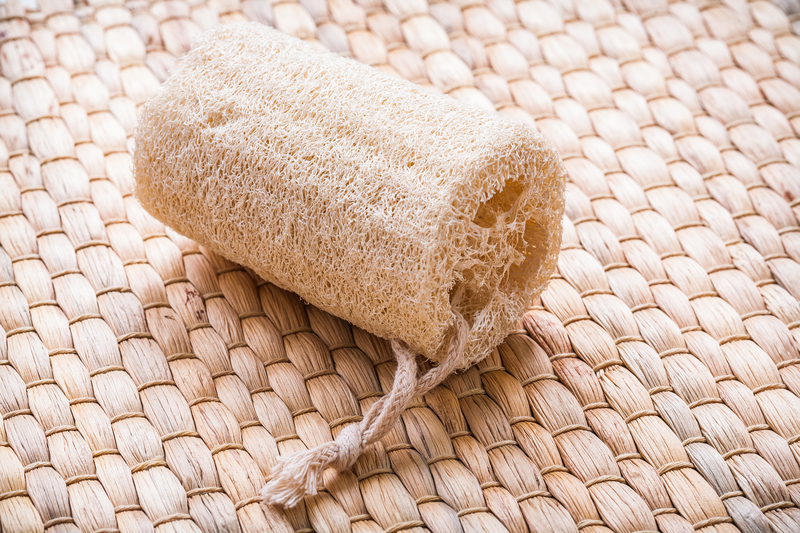Revitalize Your Home by Getting Rid of Pet Smells
Posted on 28/08/2025
Revitalize Your Home by Getting Rid of Pet Smells
Living with pets brings joy, companionship, and endless entertainment, but it can also introduce stubborn odors into your home. Whether you're dealing with a mischievous puppy, a shed-happy cat, or other animal companions, pet odors are an inevitable challenge for pet owners. If you're looking to create a fresh, inviting space, it's time to tackle those persistent smells head-on. In this comprehensive guide, we'll walk you through effective strategies to revitalize your home by getting rid of pet smells permanently.
Understanding the Source of Pet Odors
Before you can effectively eliminate pet smells, it's crucial to understand where these odors originate. Common sources include:
- Urine and feces: Both cats and dogs may sometimes have accidents indoors, leaving behind sharp, lingering odors.
- Pet dander and fur: Shedding and natural oils contribute to a distinct "pet smell" that can cling to furniture and carpets.
- Litter boxes and cages: Moisture and waste in these spaces are frequent culprits of odor problems.
- Pet bedding and toys: Anything your pet frequently touches can harbor smells if not regularly cleaned.
- Wet pets: Rain or bath time can amplify typical pet odors.
Why is It Essential to Eliminate Pet Odors?
Pet smells aren't just unpleasant--they can impact your health and home value. Persistent odors seep into fabrics, walls, and flooring, making it difficult to eradicate them. Moreover, excessive pet dander and urine can cause respiratory issues, allergies, and discomfort for household members. If you ever plan to sell or rent your property, eliminating odors is crucial to leaving a positive first impression.

First Steps: Deep Cleaning for a Fresh Start
Prepare Your Cleaning Arsenal
To successfully remove lingering pet odors from your home, you'll need the right cleaning products and tools. Here's what should be in your arsenal:
- Enzyme-based cleaners (specifically designed for pet messes)
- High-quality vacuum with HEPA filter
- Steam cleaner or carpet shampooer
- Microfiber cloths and mops
- Baking soda and white vinegar
- Laundry detergent suitable for pet bedding
- Protective gloves
Room-by-Room Cleaning Checklist
Here's an effective checklist to ensure every area is addressed:
- Floors: Vacuum carpets and rugs thoroughly. Follow up with a deep steam cleaning if possible. For hardwood, tile, or laminate, mop with a gentle, pet-safe cleaner.
- Upholstery and fabrics: Remove couch cushions, pillows, and slipcovers. Wash according to care labels, using warm water to break down odor residues.
- Bedding and pet accessories: Wash pet bedding, blankets, and toys weekly. Add a cup of vinegar to your laundry load as a natural deodorizer.
- Litter boxes and cages: Scrub with hot, soapy water weekly and replace with fresh litter/bedding. Consider using baking soda in the bottom of litter trays to absorb smells.
- Walls and baseboards: Wipe down with a solution of vinegar and water to remove greasy dander and smells.
Targeted Odor-Fighting Techniques
Enzyme Cleaners: The Secret Weapon
When it comes to eliminating pet urine odors, enzyme cleaners are unparalleled. These products contain natural enzymes that break down uric acid crystals (the source of lingering smells) instead of merely masking the odor. Simply blot up as much of the mess as possible, apply the enzyme cleaner thoroughly, and let it air dry. This method is especially effective for accidents on carpets, upholstery, and even concrete floors.
Natural Remedies: Vinegar and Baking Soda
For a more natural approach to removing pet smells, vinegar and baking soda are your go-to solutions. Here's how you can use them:
- For carpets and rugs: Sprinkle baking soda liberally, let it sit overnight, then vacuum thoroughly. Baking soda neutralizes acidic odors naturally.
- For hard surfaces: Mix equal parts white vinegar and water, and use as a spray on problem areas. The vinegar's acidity breaks down odor molecules.
Don't worry: the vinegar smell dissipates as it dries, leaving behind a fresher environment.
HEPA Filters for Pet Dander
Maintaining air quality is key to removing pet odors at their source. Pet dander becomes airborne and contributes to that "pet smell." Use a vacuum equipped with a HEPA filter, and consider running an air purifier in common areas. This minimizes allergens and keeps your home smelling clean longer.
Preventative Steps for a Lasting Fresh Atmosphere
Grooming and Pet Hygiene
Your pet's health and cleanliness directly influence the smell of your home. Stick to a routine:
- Bathe pets as needed, using gentle pet shampoos to avoid skin irritation.
- Brush regularly to reduce shedding and distribute natural oils.
- Wipe paws after walks to prevent tracking dirt and bacteria indoors.
- Trim nails to prevent scratches that trap odor-causing debris.
Consistent Cleaning Schedule
Adopt a cleaning routine that targets high-traffic pet areas multiple times a week. Frequent vacuuming, wiping surfaces, and laundering fabric items will keep pet smells at bay. Place washable mats at entryways and around litter boxes or food dishes for easier maintenance.
Upgrade to Odor-resistant Materials
If you're renovating or redecorating, consider pet-friendly materials:
- Opt for machine-washable slipcovers and rugs.
- Use leather or tightly woven fabrics for furniture, as they repel odors.
- Install hard flooring (like tile or laminate) in common pet areas for easy cleaning.
Freshening Up the Air
Ventilation Is Vital
Nothing beats clean, fresh air. Open windows for at least 30 minutes daily to release trapped odors and allow for circulation. Consider installing exhaust fans in laundry rooms or near litter boxes.
Deodorizers and Air Purifiers
Select pet-safe deodorizers or air fresheners, but avoid products with harsh chemicals or overpowering scents that can irritate pets. Charcoal bags and natural gel deodorizers are effective alternatives for absorbing unpleasant smells instead of masking them.
Investing in a quality air purifier with HEPA and carbon filters can make a significant difference in homes with multiple pets or allergy sufferers. These devices capture microscopic particles and neutralize odors at the molecular level.
When to Call in the Professionals
Sometimes, pet smells persist despite your best efforts. If you're struggling with deep-set odors in carpets, subfloors, or heating/cooling systems, professional
cleaning services can help. Specialists use industrial-grade equipment and treatments to extract odors from hard-to-reach places, ensuring every corner of your home is left smelling clean.
- Professional carpet cleaning: Ideal for severe urine stains or multi-pet households.
- HVAC duct cleaning: Removes odor buildup from vents and improves air quality.
- Ozone treatments: A last resort for musty, persistent odors that linger for years.
Note: Always confirm with professionals that products used are pet-safe.
Simple DIY Solutions: Homemade Pet Odor Neutralizers
For those who prefer DIY methods, making your own pet-safe deodorizers is simple:
- Citrus spray: Combine water, a dash of white vinegar, and a few drops of lemon or orange essential oil. Mist problem areas lightly.
- Herbal sachets: Fill small fabric pouches with dried lavender or rosemary. Place them in closets, near pet beds, or in drawers for a soft, natural scent.
- Baking soda refresher: Mix baking soda with a few drops of your favorite pet-safe essential oil and sprinkle in areas prone to odors. Vacuum after a few hours.
Tips for Future Prevention
- Regular veterinary check-ups: Certain health conditions, like urinary tract infections, can cause more frequent accidents or pungent smells. Addressing medical issues keeps your home and pets healthier.
- Proper litter box placement: Position litter boxes in well-ventilated areas and use high-quality, odor-absorbing litters.
- Train and reward: Encourage pets to eliminate outdoors or in designated spots. Positive reinforcement accelerates house training.
- Avoid using ammonia-based cleaners: The scent is similar to urine and can encourage repeat accidents, especially in cats.

Final Thoughts: Enjoy a Pet-Friendly and Fresh Home
Sharing your space with pets doesn't mean you have to put up with unpleasant smells. By combining deep cleaning, preventative care, and the right products, you can revitalize your home by getting rid of pet smells for good. Embrace the joy pets bring without sacrificing a fresh, welcoming environment.
Remember: consistency is the secret to success. With patience and diligence, your home will not only look great but also smell new--regardless of how many furry friends you have!
Frequently Asked Questions About Removing Pet Odors
- How often should I clean pet bedding? Weekly washing is ideal to keep odors under control.
- Can I use essential oils to mask pet odors? Some oils, like lavender, are safe, but always research before using them around pets, as many can be toxic.
- What if the smell persists after cleaning? Consider professional cleaning services for carpets, upholstery, and HVAC systems if DIY methods don't suffice.
- What's the best vacuum for pet hair and dander? Look for vacuums with HEPA filters and strong suction designed for households with pets.
Resources and More Advice
Now, embrace a cleaner, fresher home--love your pets and love your space!
Latest Posts
Ensure Your Windows Shine with No Streaks Left Behind
Unveil Innovative Methods to Simplify Cleaning Chores
Transform Your Window Sills: Mould Cleaning Guide





